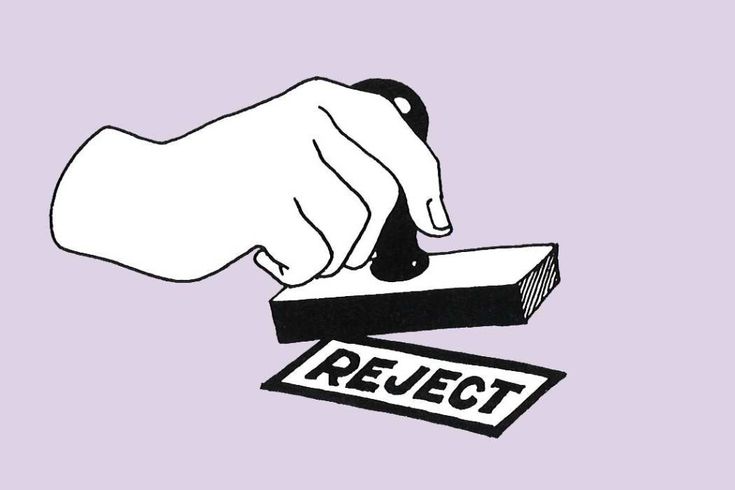Rejection is an inevitable part of life. Whether it’s a missed job opportunity, a declined proposal, or an unreciprocated relationship, it can feel like a personal failure. However, when approached with the right mindset, it can become one of the most transformative and motivating experiences in life. It is not the absence of it that defines success, but rather how we learn from and respond to it.
This blog explores the multifaceted nature of it, how it can be a catalyst for growth, and strategies for transforming setbacks into opportunities for personal and professional success.
Understanding Rejection
At its core, it is a mismatch between expectations and outcomes. When we face it , we are often triggered feelings of inadequacy, disappointment, or frustration. But why does it affect us so deeply?

The Psychology of Rejection
- Evolutionary Roots
Humans are wired for connection. In ancient times, being excluded from a group could threaten survival. This ingrained need for belonging makes one feel emotionally painful, as our brains process it similarly to physical pain. - Ego and Identity
It challenges our self-perception. It can make us question our abilities, worth, or the validity of our dreams, leading to self-doubt. - Fear of the Unknown
It often leaves us at a crossroads, uncertain of what comes next. This fear of the unknown can make it feel paralyzing.
Why Rejection is Essential for Growth
Though painful, it plays a pivotal role in personal and professional development. Here’s why embracing it is essential:

1. Builds Resilience
Every rejection strengthens your ability to persevere. Resilience is a key trait of successful individuals, allowing them to bounce back from setbacks and continue striving toward their goals.
2. Refines Goals
Sometimes, it redirects us toward better opportunities. It forces us to reassess our priorities, refine our strategies, and seek paths that align more closely with our passions and strengths.
3. Encourages Self-Improvement
Facing it compels us to evaluate our skills and areas for growth. Whether it’s improving a pitch, enhancing qualifications, or developing interpersonal skills, it often inspires self-improvement.
4. Teaches Gratitude
Experiencing rejection makes us more appreciative of the successes we achieve. It teaches us to value persistence and recognize the effort behind every accomplishment.
Transforming Rejection into Success: Strategies for Growth

1. Reframe Your Mindset
- Shift Perspective: View it as feedback, not failure. Each setback is a lesson that brings you closer to success.
- Celebrate Effort: Acknowledge the courage it took to put yourself out there, regardless of the outcome.
2. Normalize Rejection
- Accept Its Universality: Everyone faces rejection, even the most successful individuals.
- Seek Stories of Resilience: Learn about famous figures like J.K. Rowling, who faced multiple rejections before achieving success.
3. Learn from the Experience
- Analyze Constructively: Identify what led to the it and consider how you can improve.
- Seek Feedback: Constructive criticism can be invaluable for growth.
4. Develop Emotional Resilience
- Practice Self-Compassion: Be kind to yourself. Rejection does not define your worth.
- Build a Support System: Surround yourself with people who uplift and encourage you through setbacks.
5. Stay Persistent
- Set New Goals: Use it as motivation to aim higher and work harder.
- Maintain Optimism: Remember, every no brings you closer to a yes.
Real-Life Examples of Overcoming Rejection
1. Thomas Edison
Edison faced countless rejections while inventing the light bulb. His response? “I have not failed. I’ve just found 10,000 ways that won’t work.”
2. Oprah Winfrey
Fired from her first TV job and told she was “unfit for television,” Oprah turned it into a springboard for her now-iconic career.
3. Walt Disney
Disney was rejected by multiple studios and fired for lacking “imagination.” Today, his name is synonymous with creativity and success.
The Role of Rejection in Relationships

Rejection in relationships, whether romantic, platonic, or professional, can be particularly challenging. However, it offers valuable lessons:
- Self-Worth
In relationships , it remind us to value ourselves and seek connections that are mutually fulfilling. We should understand how self-worth contributes to self-love. - Communication Skills
Experiencing it can improve how we express needs, set boundaries, and navigate interpersonal dynamics. - Resilience in Love and Trust
Overcoming it fosters emotional strength and prepares us for healthier connections in the future.
Rejection in the Professional World

Professional rejection, such as missing out on a job or failing to secure funding, can be disheartening. Here’s how to leverage it:
- Use Feedback to Improve
Seek clarity on why you were rejected and use the insights to strengthen future applications. - Network for Opportunities
It can open doors to new connections and unexpected opportunities. - Diversify Your Efforts
Apply to multiple opportunities simultaneously to reduce the sting of it.
Creative Exercises to Embrace Rejection
- Rejection Journaling
Document instances of it, how they made you feel, and what you learned. Over time, you’ll notice patterns of growth. - The “Rejection Challenge”
Deliberately seek small rejections (e.g., asking for a discount at a café). This exercise desensitizes you to it and builds confidence. - Visualization
Imagine a future where every rejection led to success. This mindset encourages optimism and persistence.
When Rejection Leads to Redirection
Sometimes, it is a blessing in disguise. It may steer you away from paths that don’t serve you and toward opportunities better aligned with your purpose. Trust that each of it is part of your journey, leading you closer to where you’re meant to be.
Conclusion
It is not a dead end; it’s a detour to growth, resilience, and success. By embracing it, you transform setbacks into stepping stones that propel you toward your dreams. Remember, the greatest achievements are often born from the ashes of it.
So, the next time you face it , welcome it with open arms. Learn from it, grow through it, and let it fuel your determination. After all, it is just another word for redirection—and every “no” brings you closer to your ultimate “yes.”


Leave a Reply